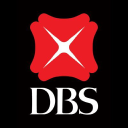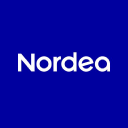PPERY

PT Bank Mandiri (Persero) Tbk
PPERY
(3.0)14 USD
2.5% ROA
22.57% ROE
464.93x PER
648.747.202.950.000 USD
84.68% DER
0% Yield
36.74% NPM
PT Bank Mandiri (Persero) Tbk Stock Analysis
PT Bank Mandiri (Persero) Tbk Fundamental Analysis
Fundamental analysis in stock investing is like studying the foundation of a house before buying it. It involves looking at a company's financial health, like its earnings, assets, and debts, to determine if it's a good investment based on its fundamental strength and potential for growth.
| # | Analysis | Rating |
|---|---|---|
| 1 |
ROE
ROE surpassing expectations (20.75%) highlights strong profitability and efficient use of shareholders' equity, making it an appealing investment prospect. |
|
| 2 |
Dividend
With a solid track record of dividend payments over the past five years, the company has established itself as a dependable choice for investors seeking consistent income. |
|
| 3 |
ROA
The stock's ROA (2.36%) indicates that it's doing well in making money from the things it owns. This makes it a good option to invest and make consistent profits. |
|
| 4 |
PBV
The stock's PBV ratio (2.4x) reflects a fair valuation, making it an attractive option for investors seeking balanced opportunities. |
|
| 5 |
DER
The stock maintains a fair debt to equity ratio (59%), indicating a reasonable balance between the money it owes and the ownership it possesses. |
|
| 6 |
Revenue Growth
This company's revenue has shown remarkable growth over the past three years, making it an excellent choice for seeking a consistently prosperous investment. |
|
| 7 |
Net Profit Growth
This company's net profit has been consistently on the rise over the past three years, indicating a strong financial performance and making it an appealing investment opportunity. |
|
| 8 |
Graham Number
The company's Graham number indicates that it is undervalued compared to its stock price, suggesting a potentially favorable investment opportunity. |
|
| 9 |
Dividend Growth
Investors can take confidence in the company's impressive track record of annual dividend growth over the last three years, showcasing a commitment to providing higher returns. |
|
| 10 |
Buffet Intrinsic Value
Warren Buffett's formula suggests that the company's stock is undervalued (801.602), making it an appealing investment prospect with its intrinsic value surpassing the current market price. |
|
| 11 |
Assets Growth
Company's revenue has remained stagnant over the past three years, indicating a lack of growth and making it a less favorable option. |
PT Bank Mandiri (Persero) Tbk Technical Analysis
Technical analysis in stock investing is like reading the patterns on a weather map to predict future weather conditions. It involves studying past stock price movements and trading volumes to make predictions about where a stock's price might go next, without necessarily looking at the company's financial health.
| # | Analysis | Recommendation |
|---|---|---|
| 1 | Awesome Oscillator | Hold |
| 2 | MACD | Buy |
| 3 | RSI | Hold |
| 4 | Stoch RSI | Sell |
PT Bank Mandiri (Persero) Tbk Price Chart
Financial Statements
Financial statements are like report cards for companies. They show how much money a company makes (income statement), what it owns and owes (balance sheet), and where it spends its money (cash flow statement), helping stock investors understand if a company is healthy and worth investing in.
Income Statements
An income statement for a company is like a scoreboard for its profits and losses. It shows how much money the company made (revenue) and how much it spent to make that money (expenses), helping stock investors see if a company is making a profit or not.
Revenue in stock investing is the total amount of money a company earns from its sales, and it's a key factor that investors consider to assess a company's financial performance and growth potential.
| Year | Revenue | Growth |
|---|---|---|
| 2005 | 12.590.018.000.000 | |
| 2006 | 13.244.873.000.000 | 4.94% |
| 2007 | 32.333.000.000.000 | 59.04% |
| 2008 | 39.824.000.000.000 | 18.81% |
| 2009 | 22.442.230.000.000 | -77.45% |
| 2010 | 28.879.986.000.000 | 22.29% |
| 2011 | 35.761.464.000.000 | 19.24% |
| 2012 | 42.597.635.000.000 | 16.05% |
| 2013 | 49.898.372.000.000 | 14.63% |
| 2014 | 59.837.807.000.000 | 16.61% |
| 2015 | 68.892.779.000.000 | 13.14% |
| 2016 | 76.368.820.000.000 | 9.79% |
| 2017 | 79.923.933.000.000 | 4.45% |
| 2018 | 85.813.505.000.000 | 6.86% |
| 2019 | 91.162.211.000.000 | 5.87% |
| 2020 | 91.988.738.000.000 | 0.9% |
| 2021 | 112.603.721.000.000 | 18.31% |
| 2022 | 22.056.000.000 | -510435.55% |
| 2023 | 125.469.980.000.000 | 99.98% |
| 2023 | 124.193.814.000.000 | -1.03% |
| 2024 | 184.016.652.000.000 | 32.51% |
Research and Development Expenses are the costs a company incurs to create and improve its products or services, which can be important for investors to evaluate a company's innovation and potential for future growth.
| Year | Research and Development Expenses | Growth |
|---|---|---|
| 2005 | 0 | |
| 2006 | 0 | 0% |
| 2007 | 0 | 0% |
| 2008 | 0 | 0% |
| 2009 | 0 | 0% |
| 2010 | 0 | 0% |
| 2011 | 0 | 0% |
| 2012 | 0 | 0% |
| 2013 | 0 | 0% |
| 2014 | 0 | 0% |
| 2015 | 0 | 0% |
| 2016 | 0 | 0% |
| 2017 | 0 | 0% |
| 2018 | 0 | 0% |
| 2019 | 0 | 0% |
| 2020 | 0 | 0% |
| 2021 | 0 | 0% |
| 2022 | 0 | 0% |
| 2023 | 0 | 0% |
| 2023 | 0 | 0% |
| 2024 | 0 | 0% |
General and Administrative Expenses are the costs a company incurs to run its day-to-day operations, such as office rent, salaries, and utilities, which investors consider to understand a company's overall efficiency and management effectiveness.
| Year | General and Administrative Expenses | Growth |
|---|---|---|
| 2005 | 3.080.079.000.000 | |
| 2006 | 3.250.893.000.000 | 5.25% |
| 2007 | 3.409.000.000.000 | 4.64% |
| 2008 | 3.862.000.000.000 | 11.73% |
| 2009 | 4.324.893.000.000 | 10.7% |
| 2010 | 5.467.972.000.000 | 20.9% |
| 2011 | 6.577.643.000.000 | 16.87% |
| 2012 | 5.512.389.000.000 | -19.32% |
| 2013 | 6.722.378.000.000 | 18% |
| 2014 | 7.944.420.000.000 | 15.38% |
| 2015 | 8.632.864.000.000 | 7.97% |
| 2016 | 9.199.153.000.000 | 6.16% |
| 2017 | 10.363.779.000.000 | 11.24% |
| 2018 | 11.502.824.000.000 | 9.9% |
| 2019 | 12.144.113.000.000 | 5.28% |
| 2020 | 11.367.283.000.000 | -6.83% |
| 2021 | 13.390.928.000.000 | 15.11% |
| 2022 | 14.058.159.000.000 | 4.75% |
| 2023 | 14.501.964.000.000 | 3.06% |
| 2023 | 14.342.877.000.000 | -1.11% |
| 2024 | 12.933.196.000.000 | -10.9% |
EBITDA stands for Earnings Before Interest, Taxes, Depreciation, and Amortization. It is a measure that helps stock investors analyze a company's profitability by looking at its earnings without considering certain expenses. This helps to get a clearer picture of the company's financial performance and its ability to generate cash flow.
| Year | EBITDA | Growth |
|---|---|---|
| 2005 | 13.277.058.000.000 | |
| 2006 | 18.747.066.000.000 | 29.18% |
| 2007 | 7.682.026.000.000 | -144.04% |
| 2008 | 9.945.057.000.000 | 22.76% |
| 2009 | 12.418.072.000.000 | 19.91% |
| 2010 | 15.235.399.000.000 | 18.49% |
| 2011 | 17.828.919.000.000 | 14.55% |
| 2012 | 21.214.827.000.000 | 15.96% |
| 2013 | 25.015.312.000.000 | 15.19% |
| 2014 | 28.861.902.000.000 | 13.33% |
| 2015 | 29.944.355.000.000 | 3.61% |
| 2016 | 23.142.832.000.000 | -29.39% |
| 2017 | 28.988.964.000.000 | 20.17% |
| 2018 | 35.760.658.000.000 | 18.94% |
| 2019 | 38.500.860.000.000 | 7.12% |
| 2020 | 28.326.096.000.000 | -35.92% |
| 2021 | 41.916.369.000.000 | 32.42% |
| 2022 | 60.891.363.000.000 | 31.16% |
| 2023 | 74.465.248.000.000 | 18.23% |
| 2023 | 79.251.783.000.000 | 6.04% |
| 2024 | -5.193.832.000.000 | 1625.88% |
Gross profit is the money a company makes from selling its products or services after subtracting the cost of producing or providing them, and it is an important measure for investors to understand a company's profitability.
| Year | Gross Profit | Growth |
|---|---|---|
| 2005 | 12.590.018.000.000 | |
| 2006 | 13.244.873.000.000 | 4.94% |
| 2007 | 32.333.000.000.000 | 59.04% |
| 2008 | 39.824.000.000.000 | 18.81% |
| 2009 | 22.442.230.000.000 | -77.45% |
| 2010 | 28.879.986.000.000 | 22.29% |
| 2011 | 35.761.464.000.000 | 19.24% |
| 2012 | 41.381.008.000.000 | 13.58% |
| 2013 | 48.745.596.000.000 | 15.11% |
| 2014 | 55.550.915.000.000 | 12.25% |
| 2015 | 62.482.956.000.000 | 11.09% |
| 2016 | 73.124.074.000.000 | 14.55% |
| 2017 | 76.270.175.000.000 | 4.12% |
| 2018 | 83.664.004.000.000 | 8.84% |
| 2019 | 91.162.211.000.000 | 8.23% |
| 2020 | 91.988.738.000.000 | 0.9% |
| 2021 | 112.603.721.000.000 | 18.31% |
| 2022 | 22.056.000.000 | -510435.55% |
| 2023 | 125.469.980.000.000 | 99.98% |
| 2023 | 123.235.528.000.000 | -1.81% |
| 2024 | 184.016.652.000.000 | 33.03% |
Net income in stock investing is like the money a company actually gets to keep as profit after paying all its bills, and it's an important measure to understand how well a company is doing financially.
| Year | Net Profit | Growth |
|---|---|---|
| 2005 | 604.531.000.000 | |
| 2006 | 2.422.472.000.000 | 75.04% |
| 2007 | 4.347.000.000.000 | 44.27% |
| 2008 | 6.082.000.000.000 | 28.53% |
| 2009 | 7.198.488.000.000 | 15.51% |
| 2010 | 9.369.226.000.000 | 23.17% |
| 2011 | 12.246.044.000.000 | 23.49% |
| 2012 | 15.504.067.000.000 | 21.01% |
| 2013 | 18.203.753.000.000 | 14.83% |
| 2014 | 19.871.873.000.000 | 8.39% |
| 2015 | 20.334.968.000.000 | 2.28% |
| 2016 | 13.806.565.000.000 | -47.28% |
| 2017 | 20.639.683.000.000 | 33.11% |
| 2018 | 25.015.021.000.000 | 17.49% |
| 2019 | 27.482.133.000.000 | 8.98% |
| 2020 | 16.799.515.000.000 | -63.59% |
| 2021 | 28.028.155.000.000 | 40.06% |
| 2022 | 41.170.637.000.000 | 31.92% |
| 2023 | 55.326.624.000.000 | 25.59% |
| 2023 | 55.060.057.000.000 | -0.48% |
| 2024 | 55.393.848.000.000 | 0.6% |
EPS, or earnings per share, is a measure that shows how much profit a company has earned for each outstanding share of its stock, and it is important for stock investors as it helps understand the profitability of a company and compare it with other companies in the market.
| Year | Earning per Share (EPS) | Growth |
|---|---|---|
| 2005 | 7 | |
| 2006 | 29 | 75.86% |
| 2007 | 52 | 43.14% |
| 2008 | 63 | 17.74% |
| 2009 | 84 | 26.19% |
| 2010 | 108 | 22.22% |
| 2011 | 132 | 18.18% |
| 2012 | 166 | 20.48% |
| 2013 | 195 | 14.87% |
| 2014 | 213 | 8.02% |
| 2015 | 218 | 2.3% |
| 2016 | 148 | -47.62% |
| 2017 | 221 | 33.48% |
| 2018 | 268 | 17.54% |
| 2019 | 294 | 8.84% |
| 2020 | 180 | -63.33% |
| 2021 | 301 | 40% |
| 2022 | 441 | 31.97% |
| 2023 | 0 | 0% |
| 2023 | 590 | 100% |
| 2024 | 594 | 0.67% |
Cashflow Statements
Cashflow statements show the movement of money in and out of a company, helping stock investors understand how much money a company makes and spends. By examining cashflow statements, investors can assess if a company is generating enough cash to pay its bills, invest in growth, and provide returns to stockholders.
Free cash flow is the leftover cash that a company generates after covering its operating expenses and capital expenditures, which is important for stock investors as it shows how much money a company has available to invest in growth, pay dividends, or reduce debt.
| Year | Free Cashflow | Growth |
|---|---|---|
| 2005 | 9.142.281.000.000 | |
| 2006 | 11.976.543.000.000 | 23.67% |
| 2009 | 11.708.620.000.000 | -2.29% |
| 2010 | 41.081.814.000.000 | 71.5% |
| 2011 | 18.899.770.000.000 | -117.37% |
| 2012 | 6.878.132.000.000 | -174.78% |
| 2013 | 10.709.354.000.000 | 35.77% |
| 2014 | 18.135.353.000.000 | 40.95% |
| 2015 | 8.492.578.000.000 | -113.54% |
| 2016 | 38.951.431.000.000 | 78.2% |
| 2017 | 2.277.342.000.000 | -1610.39% |
| 2018 | -35.256.484.000.000 | 106.46% |
| 2019 | 19.133.294.000.000 | 284.27% |
| 2020 | 96.836.173.000.000 | 80.24% |
| 2021 | 125.298.678.000.000 | 22.72% |
| 2022 | 93.499.583.000.000 | -34.01% |
| 2023 | -16.327.030.000.000 | 672.67% |
| 2023 | -76.517.163.000.000 | 78.66% |
| 2024 | 5.671.457.000.000 | 1449.16% |
Operating cash flow represents the cash generated or consumed by a company's day-to-day operations, excluding external investing or financing activities, and is crucial for stock investors as it shows how much cash a company is generating from its core business operations.
| Year | Operating Cashflow | Growth |
|---|---|---|
| 2005 | 9.553.788.000.000 | |
| 2006 | 12.240.390.000.000 | 21.95% |
| 2009 | 12.360.087.000.000 | 0.97% |
| 2010 | 42.109.002.000.000 | 70.65% |
| 2011 | 20.440.640.000.000 | -106.01% |
| 2012 | 8.798.671.000.000 | -132.32% |
| 2013 | 12.733.517.000.000 | 30.9% |
| 2014 | 21.091.691.000.000 | 39.63% |
| 2015 | 10.201.454.000.000 | -106.75% |
| 2016 | 41.521.119.000.000 | 75.43% |
| 2017 | 4.952.703.000.000 | -738.35% |
| 2018 | -31.962.470.000.000 | 115.5% |
| 2019 | 23.967.890.000.000 | 233.36% |
| 2020 | 102.060.837.000.000 | 76.52% |
| 2021 | 129.892.493.000.000 | 21.43% |
| 2022 | 100.726.048.000.000 | -28.96% |
| 2023 | -14.844.210.000.000 | 778.55% |
| 2023 | -69.622.480.000.000 | 78.68% |
| 2024 | 7.011.833.000.000 | 1092.93% |
Capex, short for capital expenditures, refers to the money a company spends on acquiring or upgrading tangible assets like buildings, equipment, or technology, which is important for stock investors as it indicates how much a company is investing in its infrastructure to support future growth and profitability.
| Year | Capital Expenditure | Growth |
|---|---|---|
| 2005 | 411.507.000.000 | |
| 2006 | 263.847.000.000 | -55.96% |
| 2009 | 651.467.000.000 | 59.5% |
| 2010 | 1.027.188.000.000 | 36.58% |
| 2011 | 1.540.870.000.000 | 33.34% |
| 2012 | 1.920.539.000.000 | 19.77% |
| 2013 | 2.024.163.000.000 | 5.12% |
| 2014 | 2.956.338.000.000 | 31.53% |
| 2015 | 1.708.876.000.000 | -73% |
| 2016 | 2.569.688.000.000 | 33.5% |
| 2017 | 2.675.361.000.000 | 3.95% |
| 2018 | 3.294.014.000.000 | 18.78% |
| 2019 | 4.834.596.000.000 | 31.87% |
| 2020 | 5.224.664.000.000 | 7.47% |
| 2021 | 4.593.815.000.000 | -13.73% |
| 2022 | 7.226.465.000.000 | 36.43% |
| 2023 | 1.482.820.000.000 | -387.35% |
| 2023 | 6.894.683.000.000 | 78.49% |
| 2024 | 1.340.376.000.000 | -414.38% |
Balance Sheet
Balance sheets provide a snapshot of a company's financial health and its assets (such as cash, inventory, and property) and liabilities (like debts and obligations) at a specific point in time. For stock investors, balance sheets help assess the company's overall worth and evaluate its ability to meet financial obligations and support future growth.
Equity refers to the ownership interest or stake that shareholders have in a company, representing their claim on its assets and earnings after all debts and liabilities are paid.
| Year | Equity | Growth |
|---|---|---|
| 2005 | 23.219.103.000.000 | |
| 2006 | 26.345.846.000.000 | 11.87% |
| 2007 | 29.244.000.000.000 | 9.91% |
| 2008 | 30.514.000.000.000 | 4.16% |
| 2009 | 35.298.263.000.000 | 13.55% |
| 2010 | 42.070.036.000.000 | 16.1% |
| 2011 | 62.654.408.000.000 | 32.85% |
| 2012 | 76.532.865.000.000 | 18.13% |
| 2013 | 88.790.596.000.000 | 13.81% |
| 2014 | 104.844.562.000.000 | 15.31% |
| 2015 | 119.491.841.000.000 | 12.26% |
| 2016 | 153.369.723.000.000 | 22.09% |
| 2017 | 170.006.132.000.000 | 9.79% |
| 2018 | 184.960.305.000.000 | 8.09% |
| 2019 | 209.034.525.000.000 | 11.52% |
| 2020 | 193.796.083.000.000 | -7.86% |
| 2021 | 222.111.282.000.000 | 12.75% |
| 2022 | 252.245.455.000.000 | 11.95% |
| 2023 | 268.603.940.000.000 | 6.09% |
| 2023 | 287.494.962.000.000 | 6.57% |
| 2024 | 282.332.541.000.000 | -1.83% |
Assets represent the valuable resources that a company owns, such as cash, inventory, property, and equipment, and understanding a company's assets helps investors assess its value and potential for generating future profits.
| Year | Assets | Growth |
|---|---|---|
| 2005 | 263.383.348.000.000 | |
| 2006 | 267.517.192.000.000 | 1.55% |
| 2007 | 319.086.000.000.000 | 16.16% |
| 2008 | 358.439.000.000.000 | 10.98% |
| 2009 | 394.616.604.000.000 | 9.17% |
| 2010 | 449.774.551.000.000 | 12.26% |
| 2011 | 551.891.704.000.000 | 18.5% |
| 2012 | 635.618.708.000.000 | 13.17% |
| 2013 | 733.099.762.000.000 | 13.3% |
| 2014 | 855.039.673.000.000 | 14.26% |
| 2015 | 910.063.409.000.000 | 6.05% |
| 2016 | 1.038.706.009.000.000 | 12.38% |
| 2017 | 1.124.700.847.000.000 | 7.65% |
| 2018 | 1.202.252.094.000.000 | 6.45% |
| 2019 | 1.318.246.335.000.000 | 8.8% |
| 2020 | 1.429.334.484.000.000 | 7.77% |
| 2021 | 1.725.611.128.000.000 | 17.17% |
| 2022 | 1.992.544.687.000.000 | 13.4% |
| 2023 | 2.006.939.146.000.000 | 0.72% |
| 2023 | 2.174.219.449.000.000 | 7.69% |
| 2024 | 2.258.086.703.000.000 | 3.71% |
Liabilities refer to the financial obligations or debts that a company owes to creditors or external parties, and understanding a company's liabilities is important for investors as it helps assess the company's financial risk and ability to meet its obligations.
| Year | Liabilities | Growth |
|---|---|---|
| 2005 | 240.164.245.000.000 | |
| 2006 | 241.171.346.000.000 | 0.42% |
| 2007 | 138.530.000.000.000 | -74.09% |
| 2008 | 174.498.000.000.000 | 20.61% |
| 2009 | 359.318.341.000.000 | 51.44% |
| 2010 | 407.704.515.000.000 | 11.87% |
| 2011 | 489.237.296.000.000 | 16.67% |
| 2012 | 559.085.843.000.000 | 12.49% |
| 2013 | 644.309.166.000.000 | 13.23% |
| 2014 | 750.195.111.000.000 | 14.11% |
| 2015 | 790.571.568.000.000 | 5.11% |
| 2016 | 885.336.286.000.000 | 10.7% |
| 2017 | 954.694.715.000.000 | 7.26% |
| 2018 | 1.017.291.789.000.000 | 6.15% |
| 2019 | 1.109.211.810.000.000 | 8.29% |
| 2020 | 1.235.538.401.000.000 | 10.22% |
| 2021 | 1.503.499.846.000.000 | 17.82% |
| 2022 | 1.740.299.232.000.000 | 13.61% |
| 2023 | 1.738.335.206.000.000 | -0.11% |
| 2023 | 146.178.394.000.000 | -1089.19% |
| 2024 | 1.975.754.162.000.000 | 92.6% |
PT Bank Mandiri (Persero) Tbk Financial Ratio (TTM)
Valuation Metrics
- Revenue per Share
- 1663.33
- Net Income per Share
- 604.06
- Price to Earning Ratio
- 464.93x
- Price To Sales Ratio
- 4.18x
- POCF Ratio
- 451.13
- PFCF Ratio
- 12.85
- Price to Book Ratio
- 103.05
- EV to Sales
- 4.19
- EV Over EBITDA
- 17.41
- EV to Operating CashFlow
- 11.21
- EV to FreeCashFlow
- 12.9
- Earnings Yield
- 0
- FreeCashFlow Yield
- 0.08
- Market Cap
- 648.747 Bil.
- Enterprise Value
- 651.100 Bil.
- Graham Number
- 6085.99
- Graham NetNet
- -20625.64
Income Statement Metrics
- Net Income per Share
- 604.06
- Income Quality
- 1.03
- ROE
- 0.23
- Return On Assets
- 0.02
- Return On Capital Employed
- 0.08
- Net Income per EBT
- 0.74
- EBT Per Ebit
- 1
- Ebit per Revenue
- 0.5
- Effective Tax Rate
- 0.2
Margins
- Sales, General, & Administrative to Revenue
- 0.1
- Research & Developement to Revenue
- 0
- Stock Based Compensation to Revenue
- 0
- Gross Profit Margin
- 1.11
- Operating Profit Margin
- 0.5
- Pretax Profit Margin
- 0.5
- Net Profit Margin
- 0.37
Dividends
- Dividend Yield
- 0
- Dividend Yield %
- 0
- Payout Ratio
- 0.59
- Dividend Per Share
- 0
Operating Metrics
- Operating Cashflow per Share
- 622.53
- Free CashFlow per Share
- 540.83
- Capex to Operating CashFlow
- 0.13
- Capex to Revenue
- 0.05
- Capex to Depreciation
- 1.65
- Return on Invested Capital
- 0.13
- Return on Tangible Assets
- 0.03
- Days Sales Outstanding
- 129.93
- Days Payables Outstanding
- 0
- Days of Inventory on Hand
- 0
- Receivables Turnover
- 2.81
- Payables Turnover
- 0
- Inventory Turnover
- 0
- Capex per Share
- 81.7
Balance Sheet
- Cash per Share
- 790,25
- Book Value per Share
- 3.024,99
- Tangible Book Value per Share
- 2963.4
- Shareholders Equity per Share
- 2725.22
- Interest Debt per Share
- 2692.79
- Debt to Equity
- 0.85
- Debt to Assets
- 0.1
- Net Debt to EBITDA
- 0.06
- Current Ratio
- 0.23
- Tangible Asset Value
- 276.584 Bil.
- Net Current Asset Value
- -1.686.282 Bil.
- Invested Capital
- -9.23344112E+14
- Working Capital
- -987.666 Bil.
- Intangibles to Total Assets
- 0
- Average Receivables
- 55.547 Bil.
- Average Payables
- 1.329 Bil.
- Average Inventory
- -1.29442708E+14
- Debt to Market Cap
- 0.33
Dividends
Dividends in stock investing are like rewards that companies give to their shareholders. They are a portion of the company's profits distributed to investors, typically in the form of cash payments, as a way for them to share in the company's success.
| Year | Dividends | Growth |
|---|---|---|
| 2009 | 0 | |
| 2010 | 0 | 0% |
| 2011 | 0 | 0% |
| 2012 | 0 | 0% |
| 2013 | 0 | 0% |
| 2014 | 0 | 0% |
| 2015 | 0 | 0% |
| 2016 | 0 | 0% |
| 2017 | 0 | 0% |
| 2018 | 0 | 0% |
| 2019 | 0 | 0% |
| 2020 | 0 | 0% |
| 2021 | 0 | 0% |
| 2022 | 0 | 0% |
| 2023 | 0 | 0% |
| 2024 | 0 | 0% |
PT Bank Mandiri (Persero) Tbk Profile
About PT Bank Mandiri (Persero) Tbk
PT Bank Mandiri (Persero) Tbk provides various banking products and services to individuals and businesses in Indonesia, Singapore, Hong Kong, Timor Leste, Shanghai, Malaysia, the United Kingdom, and the Cayman Islands. It offers savings and current accounts, time deposits, demand deposits, and foreign currency savings and current accounts; motorcycle loans, mortgage loan, and housing loans, as well as loans for various purposes, such as education, home renovation, marriage, health, and other needs for individuals; and working capital loans, investment loans, people's business loans, syndicated loans, and micro business loans for businesses. The company also provides investment products comprising mutual funds, stocks, and bond trading; life, health, and general insurance products; credit, debit, and corporate cards; e-banking services; digital lending; cash management services; trade finance services, value chain, supply chain management, global and domestic trade, export and import, standby letter of credit, and bank guarantee, as well as spot and forex services; custodial services; treasury services, including cash transaction/liquidity, hedging, and investment products; trust services comprising trustee, paying agent, security agent, escrow agent, monitoring agent, and receiving bank services; and money transfer, remittance services, and venture capital financing. As of 31 December 2021, it operated 2,609 branches, including 137 branch offices, 2,465 sub-branch offices, and 7 overseas branch offices; and 13,087 ATM facilities. The company was founded in 1998 and is headquartered in Jakarta, Indonesia.
- CEO
- Mr. Darmawan Junaidi
- Employee
- 38.342
- Address
-
Plaza Mandiri
Jakarta, 12190
PT Bank Mandiri (Persero) Tbk Executives & BODs
| # | Name | Age |
|---|---|---|
| 1 |
Mr. Rohan Hafas Director of Institutional Relations & Director |
70 |
| 2 |
Mr. Aquarius Rudianto Director of Network & Retail Banking and Director |
70 |
| 3 |
Mr. Agus Dwi Handaya Director of Compliance & Human Resources and Director |
70 |
| 4 |
Mr. Darmawan Junaidi President Director |
70 |
| 5 |
Mr. Sigit Prastowo Director of Finance & Strategies and Director |
70 |
| 6 |
Mr. Riduan Ahmad Director of Corporate Banking & Director |
70 |
| 7 |
Dedy Teguh Krisnawan Group Head of Legal |
70 |
| 8 |
Ms. Alexandra Askandar Vice President Director |
70 |
| 9 |
Mr. Toni Eko Boy Subari Director of Operation & Director |
70 |
| 10 |
Mr. Laurensius Teiseran Group Head of Investor Relation |
70 |













